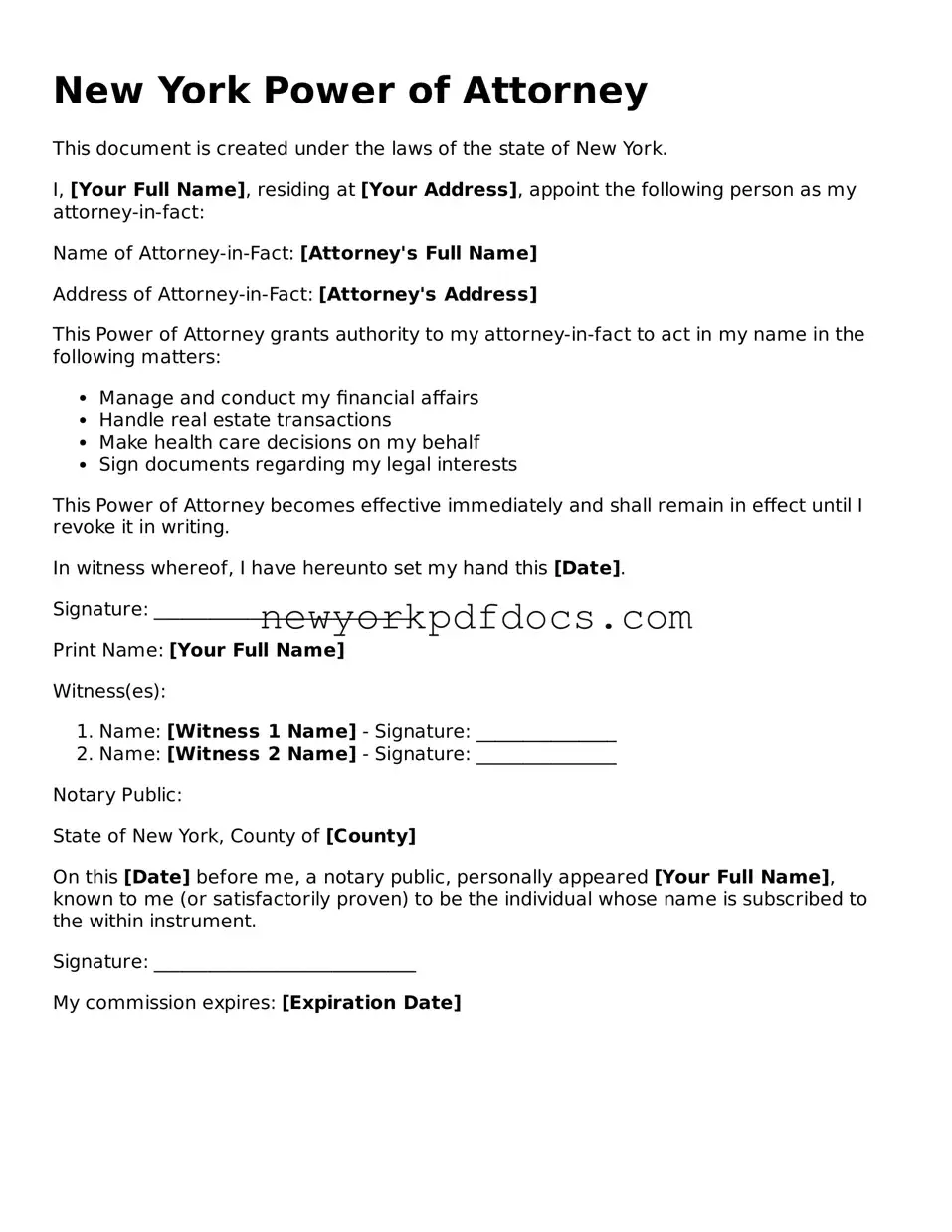Valid Power of Attorney Document for New York
A Power of Attorney form in New York allows an individual to appoint someone else to make decisions on their behalf. This legal document can cover various areas, such as financial matters or healthcare choices. Understanding its components and implications is essential for anyone considering this arrangement.
Open My Document Now

Valid Power of Attorney Document for New York
Open My Document Now
Your form isn’t finalized yet
Edit, save, and download Power of Attorney online with ease.
Open My Document Now
or
⇓ Power of Attorney PDF
